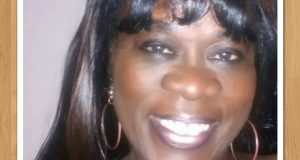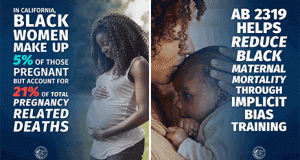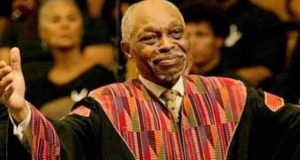By Charlene Muhammad | California Black Media
LOS ANGELES – New America Media, the Leadership Conference on Civil and Human Rights, and the Advancement Project California hosted a panel discussion at the Japanese Cultural Center on the stakes and risks of the 2020 Census, and why California counts.
The event was part a collaborative effort among statewide non-profit organizations convened to help educate policymakers and community leaders about the policies and government investments needed for a fair and accurate count in 2020, according to sponsors of the Oct. 6 gathering.
Decisions being made by Congress and the Trump Administration will determine whether planning and funding for the 2020 Census are sufficient for a fair and accurate count, but already, Trump’s 2018-2019 budget request was already woefully inadequate and unrealistic, the non-profit advocates charged in a Census and California fact sheet.
“Necessary testing has already been cut back due to lack of sufficient funds. The window for the administration and Congress to prevent a failed 2020 Census is narrowing quickly,” the document indicated.
“California’s more than 2.5 million young children are especially at risk of being missed. Black and Hispanic children have the highest undercounts of any age group. Sixteen California cities rank in the top 100 places with the highest number and percent of children under the age of 5 living in hard-to-count census tracts,” the fact sheet continued.
Advocates have prioritized ensuring there is sufficient funding in the 2018-2019 budget for outreach efforts, and that a committee of trusted, experienced organizational leaders is established to ensure hard-to-count populations are reached. They are also working to provide local governments with similar populations participate in a program established by Congress to improve the accuracy of the census address lists.
“We are at risk of losing federal funding for programs and political representation in the House in the decade after 2020,” said Dr. John Dobard, manager of Political Voice, Advancement Project California, which advocates for policy and systems changes that foster upward mobility in communities most impacted by racial and economic injustice.
Census data helps determine the allocation of over $600 billion in federal funding and programs to communities across the country, such as Medicaid, nutrition, housing, highway planning and construction, and children’s health insurance, to name a few. It also determines the reapportionment of seats in the House of Representatives, so California needs all residents counted to receive its fair share, Dobard stated.
However, innovations in how the organization will administer the count, shifts in the federal landscape, such as a leadership void at the Census Bureau, and California’s demographics will make that difficult, said Dobard.
As she introduced presenters, Sandy Close, executive director of New America Media, said it was an honor to partner with the groups to forge a better grasp of what’s at stake for California’s communities, and why it feels like the 2020 count is a riskier proposition than it as in 2020.
A threat to an accurate count in the Black community he’s served has been the ability to actually culturally identify Blacks in the state, particularly because of tremendous shifts out of Los Angeles to the Inland Valley of San Bernardino and Riverside County, and other areas, stated Reverend Samuel Casey, executive director, Congregations Organized for Prophetic Engagement.
Another challenge was apathy and getting Blacks to participate, especially when it came to the federal government’s promise of more resources, he said.
Even the question format proves problematic, he said. “In each one of these communities in the Inland Valley, one of the challenges I know there’s going to be is African Americans explicitly identifying as African Americans or Black,” Casey stated.
“There are those who are multi-racial, who would probably prefer to identify as Latino or as Asian, or some other ethnicity, rather than identify as Black, even though we’re familiar with the “One-drop” rule within our nation. If you have one drop of African blood in your system, you are by definition African American and/or Black,” Casey continued.
It will be important to pay attention to the cultural relevance of materials presented, he urged.
Other presenters were Ditas Katague (Chair, U.S. Census Bureau’s National Advisory Committee on Race, Ethnicities and Other Populations), Ofelia Medina (Director of State Civic Engagement Policy with NALEO (National Association of Latino Elected and Appointed Officials) Educational Fund’s Policy Research and Advocacy, Stewart Kwoh (Founding President and Executive Director of Asian Americans Advancing Justice – Los Angeles), and Dr. Joely Proudfit (Director of California Indian Culture and Sovereignty Center, California State University- San Marcos) concurred that distrust of the American government, whether federal, state, or local, would be a major hurdle in getting residents to participate in the count.
“The state quickly realized in 1990, we had a huge undercount of over 800,000 people here in California, and we lost billions of dollars, and we lost getting an additional congressional seat,” Katague stated.
After investing millions of its own money for outreach in 1999 and partnering with ethnic media, California outpaced the entire country by two percentage points in participation, according to Katague.
“California gained an additional congressional seat, which was great … but that was by just 18 people being counted,” she said. She is most worried about the Census Bureau putting funding toward ethnic media advertising campaigns, which have had huge impacts.
Reverend Samuel Casey, Executive Director, Congregations Organized for Prophetic Engagement, discusses challenges and solutions to counting Blacks for the 2020 Census.
 Westside Story Newspaper – Online The News of The Empire – Sharing the Quest for Excellence
Westside Story Newspaper – Online The News of The Empire – Sharing the Quest for Excellence




